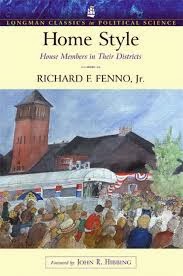The Barking RINO Essay 11
Readers of this column will already know that it is my
supposition that internal debate is, at least at this stage of our political
landscape, more effective than external debate. In other words, being critical
of your own political platform, in the effort to vet proposals and thus put
forward and achieve better ideas is a more effective method to get project ‘good’
ideas onto the political landscape.
In our current political landscape, the media has a vested interest
creating schisms. By employing bias into their reporting, media outlets can
assure an income stream based upon an audience size of sycophantic followers…or
‘true believers.’ While this works quite well for the media, as the assumed
fourth leg of government, such an overt bias does little to stimulate effective
debate which works towards much needed efficiency and inclusion in governmental
operations. When one’s loyalty is based upon implicit agreement, debate dies
and the search for truth is lost to the pursuit of advertising dollars. For
example, when was the last time someone yelled and belittled you so effectively
that you agreed with them? I don’t think it happens. So we know that Diana Mutz’s
theory on media bias perpetuates schisms and abets the myth of a divided
America. (Mutz and Reeves, The New
Videomalaise: Effects of Televised Incivility on Political Trust 2005) (Mutz, Effects
of "In-Your'Face" Telvision Discourse on Perceptions of a Legitimate
Opposition 2007) (M. P.
Fiorina, The Great Divide 1991) (M. P.
Fiorina, Congress,Keystone to the Washington Establishment, 2nd ed 1989) (M. Fiorina
2011) (M. Fiorina,
Conversations on Religion in American Life November) (Abrahms 2007) .
Some of the questions that Republicans might want to debate
include: in a time of an on-going annual budget deficit and a national debt that
exceeds $17 trillion dollars, does it make sense for the American military
budget to continue to represent nearly 50% of the world’s military budget? Can
we sustain an economy where government payment of benefits coupled with an inequality
in the income tax base, perpetuates annual debt and seemingly endless cycle of
borrowing? If we can foresee the retirement of Baby Boomers but know that, for the
most part, they have woefully under-saved for their retirement, should we
simply ignore the issue? Finally, how serious should a candidate be taken who
promises tax cuts, increased military spending AND a balanced budget?
Even a cursory examination of popular conservative campaign
rhetoric indicates that party platform goals do not align. Simply stated, if
the effectiveness and efficiency of government and the seemingly unlimited
nature of government intrusion are causes for legitimate concern, why on earth
do we continue to give a consensual pass to candidates that we know are telling
us what we want to hear at the expense of both our future
and the messages that we need to hear? We are, in essence, complicit in
perpetuating bad government simply because we lack the political courage to be
critical of our own bad examples.
In 1993-1994 Canada enacted the ‘budget triumph.’ This action
stated that for every seven dollars in cuts of government expenditures they
would raise taxes by one dollar. By 1997 they had lowered debt as a percent of
GDP by 38% and balanced the budget for eleven consecutive years (Makings 2010) . While raising taxes
is anathema to conservative politics, it will be the honest Statesman that
creates the forum in which we honestly debate ‘what is the role of our
government?’ We now know the day has arrived when America can no longer afford
to borrow from others in order to achieve both “guns and butter.” Simply arithmetic
demonstrates that it is foolish to suggest only cutting government expenditures
can lead to a balanced budget. Honest political debate is needed so that
leadership can develop that has the authority and ability and can make us go
where we need to go, rather than current leadership which lead us to where we
want to go. The ability to win elections by being honest is being stymied by a
lack of honest debate which leads to the pursuit of real world solutions to
issues which we all know need to be addressed. The ineffectiveness of
government is not caused by partisan opposition; it is caused by listening to
that fellow in the mirror who so comfortably lies to us and allows us to blame
another while we shirk our own advice at the expense of this nation’s great
future.
Suggested Reading and
Listening:
Abrahms, Samuel. "Culture War? Exposing Myth of
Red vs Blue States." National Public Radio. October 27, 2007.
http://www.npr.org/books/authors/138440248/morris-p-fiorina (accessed December
27, 2014).
Fiorina, Morris. "Conversations
on Religion in American Life." National Public Radio. 13 2004 ,
November.
http://www.npr.org/player/v2/mediaPlayer.html?action=1&t=1&islist=false&id=4168707&m=4168708
(accessed December 27, 2014).
—. "Finding the
Cure for Pendulum Politics." National Public Radio . November 13,
2011.
http://www.npr.org/2011/11/13/142288879/finding-the-cure-for-pendulum-politics
(accessed December 27, 2014).
Fiorina, Morris P. Congress,Keystone
to the Washington Establishment, 2nd ed. New Haven: Yale University Press,
1989.
—. "The Great
Divide." The Washington Monthly, December 1991: 53 - 55.
Heclo, Hugh.
"Hyperdemocracy." The Wilson Quaterly, 1999: 62 - 71 .
Heclo, Hugh.
"Issue Networks and the Executive Establishment." In The
New American Political System , by Anthony King, 87 - 124.
Washington D.C. : American Enterprise Institute for Public Policy Research,
1978.
Makings, Emily.
"Lessons from Canada." Washington Research Council. October
10 , 2010. http://researchcouncil.org/2010/10/07/lessons-from-canada/ (accessed
December 27, 2014).
Mutz, Diana C.
"Effects of "In-Your'Face" Telvision Discourse on Perceptions
of a Legitimate Opposition." American Political Science Review,
2007: 621 - 635.
Mutz, Diana C., and
Byron Reeves. "The New Videomalaise: Effects of Televised Incivility on
Political Trust." American Political Science Review (American
Political Science Review), 2005: 1 - 15.

